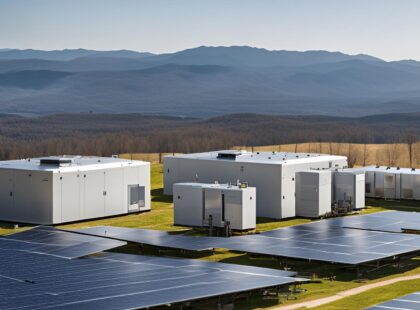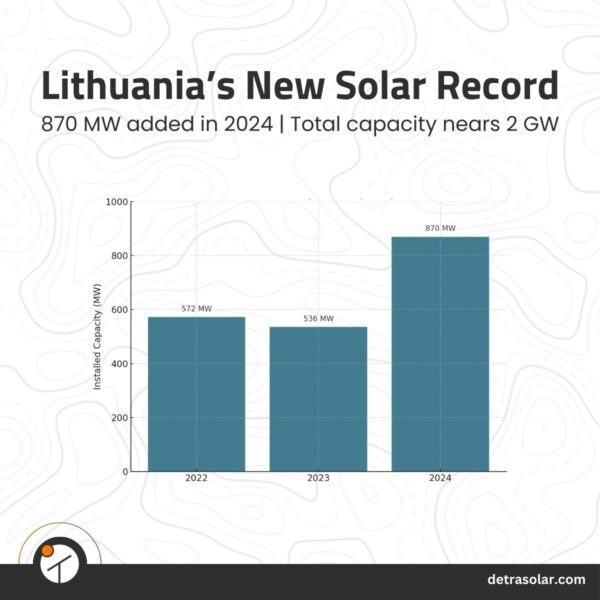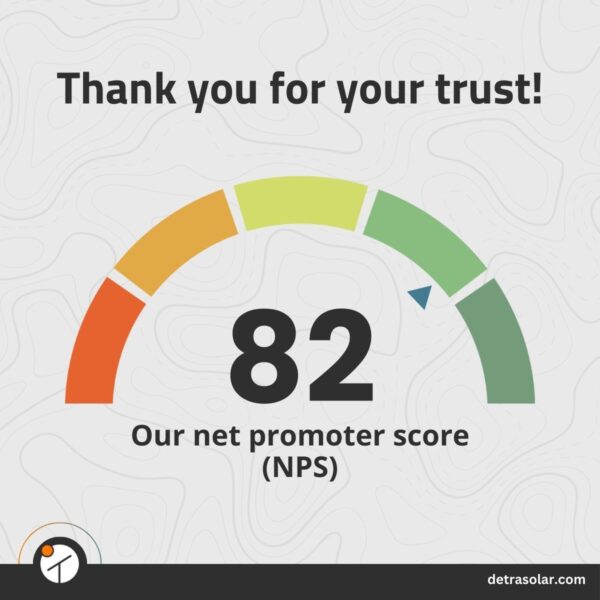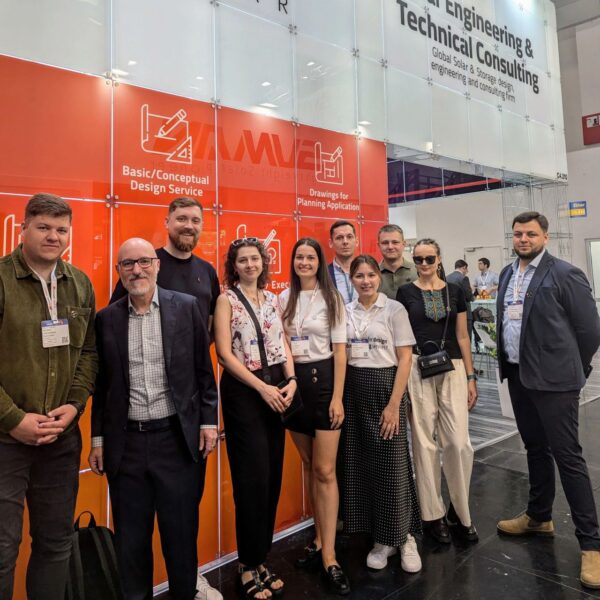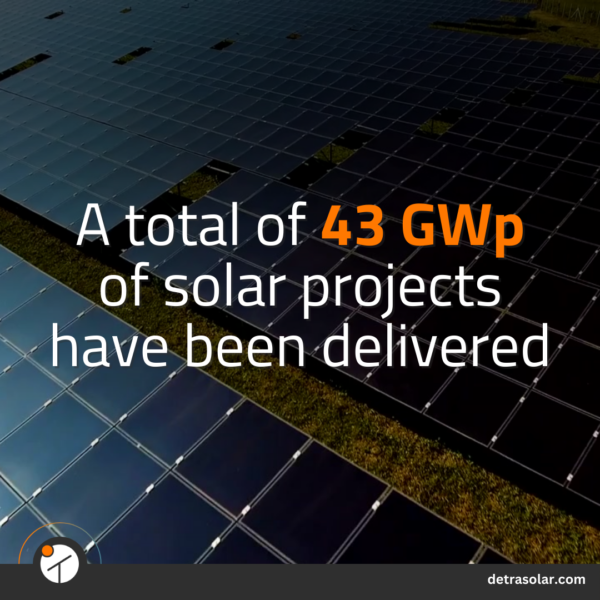Case Study: Elektrum Lietuva Rokiskis Solar Park
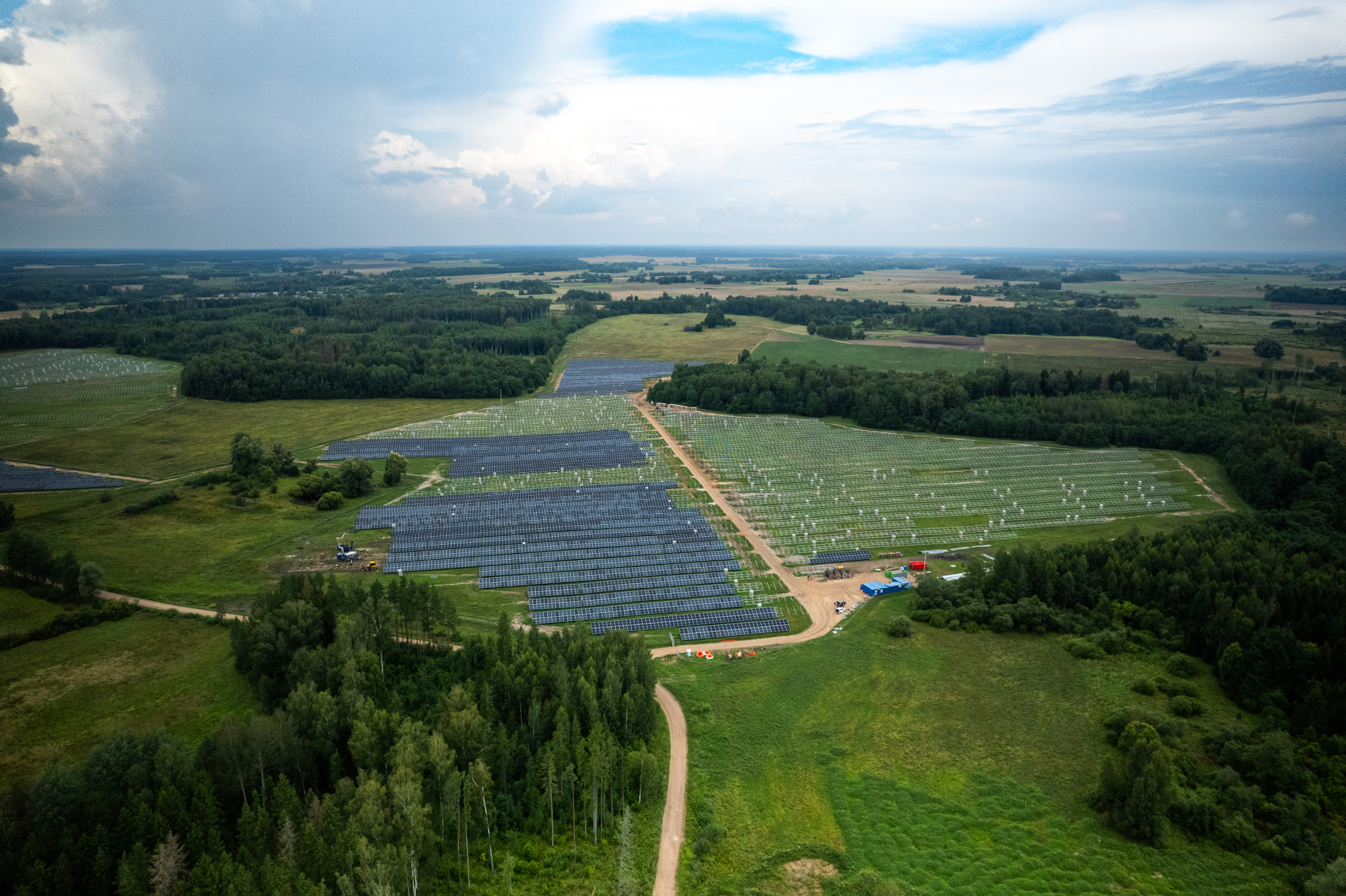
Elektrum Lietuva, an independent electricity supplier, is actively expanding its renewable energy portfolio in Lithuania. As part of its mission to advance the country’s energy independence, Elektrum Lietuva is developing the Rokiskis Solar Park, with an installed capacity of 26 MWp. This solar park is one of three major projects in the company’s pipeline, totaling 182 MW of capacity. Instead of leasing or selling these projects, Elektrum Lietuva plans to retain them as long-term strategic assets, reinforcing its commitment to sustainable energy solutions.
The design of the Rokiskis Solar Park, led by Detra Solar, features 38,000 bifacial solar modules and 4 transformers, carefully optimized for maximum energy production. In addition to the design work, Detra Solar implemented strategies to reduce construction costs and improve project efficiency, achieving an approximately 10% reduction in cable length—saving around 20,000 meters (20 km) of DC cables and 2,500 meters (2.5 km) of AC cables—which further enhances the park’s sustainability and long-term performance.
Client
Elektrum Lietuva – A leading developer in solar, wind, and residential renewable energy projects, as well as electric vehicle charging solutions for individuals and businesses.
Project Location
Rokiskis, Lithuania
Key Deliverables
Detra Solar provided a comprehensive set of deliverables to ensure the efficient construction of the Rokiskis Solar Park, including:
- General Plan: Overall layout optimizations of the 2-portrait fixed-tilt PV system within the provided boundary.
- Fence & Road Layout: Design and placement of fencing and maintenance roads around the site.
- Various Elevation Drawings: Detailed side views of the fence, road, PV mounting system, inverter mounting and cable connection, string wiring, and other elements.
- Stringing Layout: PV String design and labeling system on a string level.
- String Cable Duct Layout: Distribution of string cable ducts on site.
- DC/AC Cabling Layouts: LV cables distribution on site (string/inverter level).
- Trench Design: Design of trenches for cabling on site.
- Single Line Diagram: Full electrical schematic of the project on a LV level.
- PVSyst Yield Analysis: Simulation and analysis of the PV system’s energy yield while accurately evaluating various shading and losses on site.
- Bill of Materials: Comprehensive list of equipment and quantities required for construction.
- Ampacity calculations: Main LV power cables selection for the project.
- Pilling information: Preparation of module structure coordinates, pile length lists with leading PV software – PVcase.
Main Challenges
Cable Length Optimization: One of the most complex aspects of the Rokiskis Solar Park was the optimization of cable lengths. Given the size and structure of the park, the goal was to minimize material usage without compromising on performance, thereby ensuring the project stayed within budget. Through this process, we achieved an approximately 10% reduction in total cable length, resulting in savings of around 20,000 meters (20 km) of DC cables and 2,500 meters (2.5 km) of AC cables. These reductions helped to significantly lower both costs and installation time.
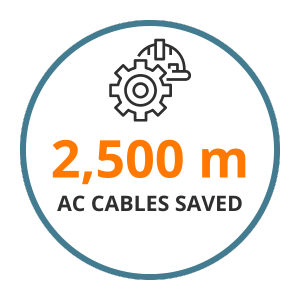
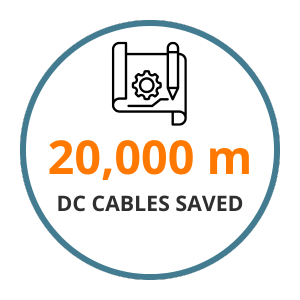

Non-Standard Mounting Solutions: The project involved the integration of non-standard bifacial solar modules, requiring collaboration with Polish module mounting manufacturers. Detra Solar’s engineering team needed to fully understand and apply these innovative installation solutions across the park’s two main areas.
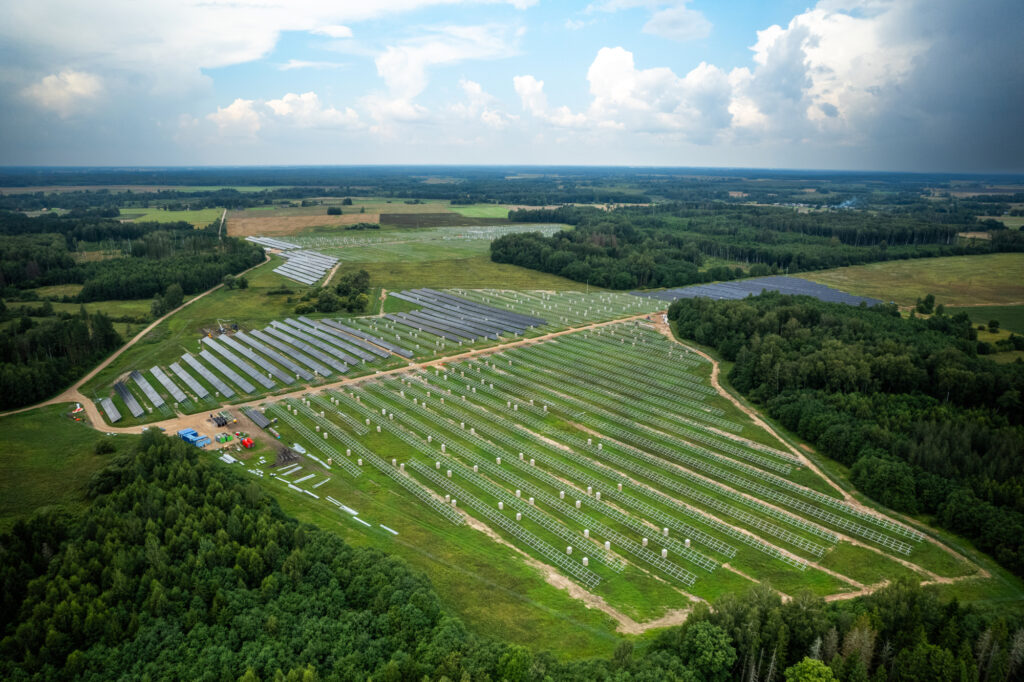
Design Optimization and Technical Adaptability
- Terrain and Structure Adaptability: We conducted a terrain analysis to adjust the module structure sizes in challenging terrain areas. Through multiple design iterations, we successfully adapted the entire site using Polish-manufactured mounting structures without the need for cut-and-fill, significantly reducing construction costs for the client. Additionally, we collaborated with the structure manufacturers to find a solution for utilizing peat-covered areas by incorporating concrete piles, which allowed us to maintain the full 26 MW DC capacity without removing any module tables in difficult terrain.
- Possible equipment analysis and selection: We conducted a detailed comparison study before the start of the design phase in order to sort out which equipment would be the best in terms of yield for Rokiskis site conditions. The comparison study was done between the most popular Tier 1 module and inverter manufacturers. After multiple PVsyst report iterations and layout revisions with multiple different configurations, the most optimal equipment was found which was later approved by the client after their final financial calculations.
Project Timeline
- Design Phase Start: January 2023
- Civil Drawings: Completed on time
- Electrical Design: Delivered within project timelines, ensuring the solar park could advance to the construction phase without delays
Results
Detra Solar successfully delivered all required design documents, meeting the client’s timeline and cost requirements. Through the optimization of cable lengths, we achieved an approximately 10% reduction, saving around 20,000 meters (20 km) of DC cables and 2,500 meters (2.5 km) of AC cables, leading to lower material costs. Additionally, our thorough terrain analysis, in collaboration with Polish manufacturers, enabled the implementation of non-standard mounting structures, eliminating the need for cut-and-fill and further reducing construction expenses. These design optimizations ensured a smooth transition into the construction phase, with the Rokiskis Solar Park now set to deliver 26 MWp of clean energy.
Testimonial
“Detra Solar are professionals in their field, a young team, which always solves problems promptly and effectively. It is always a pleasure to return, and I look forward to collaborating with them in the future.”
– Egidijus Petrulis, Rokiskis Solar Park Manager at Elektrum Lietuva
Conclusion
The Rokiskis Solar Park marks a significant achievement in Elektrum Lietuva’s ongoing mission to enhance Lithuania’s energy independence through renewable energy projects. By partnering with Detra Solar, Elektrum Lietuva overcame technical challenges while keeping the project on time and within budget. The successful collaboration demonstrated Elektrum Lietuva’s ability to navigate complex energy projects and solidified its position as a key player in Lithuania’s renewable energy landscape.
As part of Elektrum Lietuva’s broader portfolio of clean energy developments, the 26 MWp Rokiskis Solar Park will be a crucial contributor to Lithuania’s clean energy future, reinforcing the company’s role as a leader in the transition to sustainable energy.
